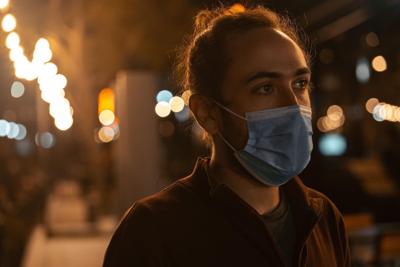China is grappling with a public health challenge as over 7,000 cases of the chikungunya virus have been reported since July in the Guangdong province. This mosquito-borne infection, although rare in China, has prompted significant measures to prevent its spread, reminiscent of strategies used during previous viral outbreaks, reports the BBC.
The hardest-hit area, Foshan city, has seen patients hospitalized under strict protocols, including using mosquito nets. According to the BBC, Foshan, along with at least 12 other cities, has confirmed cases, raising concerns as nearly 3,000 new infections emerged last week alone. The virus also reached Hong Kong, with a case confirmed in a 12-year-old boy who recently traveled to Foshan.
Chikungunya is a viral illness spread by the bite of an infected mosquito, producing symptoms like fever and severe joint pain, which can persist for months. According to Euronews, the World Health Organization states that while the virus is not contagious among humans, mosquitoes that bite an infected person can transmit the virus to others.
Read more on Chicago Star:
- Chicago Innovation Award winners ring NASDAQ closing bell in Times Square
- Chicago parks come alive as Midnight Circus blends spectacle with giving back
- Chicago artist puts his stamp on USPS 250th anniversary
- Nights under the big screen: 5 Chicago outdoor movie venues to visit through September
Authorities in Guangdong have pledged to implement "decisive and forceful measures" to stop the virus's spread, as reported by the South China Morning Post. Efforts include mosquito control strategies targeting stagnant water, the primary breeding ground for mosquitoes, with fines imposed for non-compliance. Innovative approaches in Foshan address the problem by introducing mosquito-eating fish into bodies of water and employing drones to identify potential breeding sites.
As the world watches closely, travelers to China are advised to exercise increased caution, following a US travel advisory prompted by the outbreak. While most cases remain mild, the public's concern over the disease's potential for lingering effects remains high, underscoring the importance of continued vigilance.








(0) comments
Welcome to the discussion.
Log In
Keep it Clean. Please avoid obscene, vulgar, lewd, racist or sexually-oriented language.
PLEASE TURN OFF YOUR CAPS LOCK.
Don't Threaten. Threats of harming another person will not be tolerated.
Be Truthful. Don't knowingly lie about anyone or anything.
Be Nice. No racism, sexism or any sort of -ism that is degrading to another person.
Be Proactive. Use the 'Report' link on each comment to let us know of abusive posts.
Share with Us. We'd love to hear eyewitness accounts, the history behind an article.